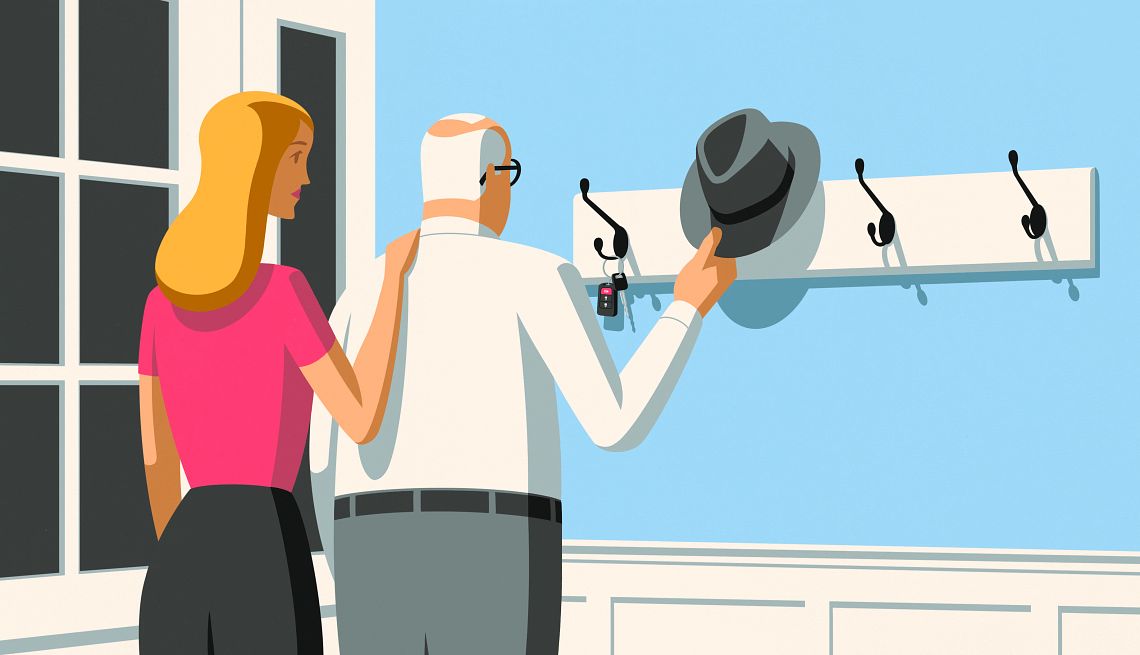AARP Hearing Center


Phil Burns*, a prominent business owner in Oakland, California, with a legacy of philanthropy, was in his 70s when it became obvious that his cognition had begun to decline. His daughter Caroline*, now 62, and her siblings realized that their family had no language to talk about what was happening. Their father had been the patriarch and their mother, his staunch supporter and confidant, was also failing cognitively.
“There was no admitting what was happening with my father, and he wouldn’t go near the doctor, so we couldn’t do anything,” says Caroline. “My parents both lacked self-awareness of their deficits.” During this time, one of her father’s trusted assistants began covering for him, making decisions, signing papers and eventually stealing from the business, claiming he had gifted her the money.
“When my mom took a big fall, everything fell apart and we could bring in the doctors and put some guardrails in place,” says Caroline. “But there was a lot of anger on [my Dad’s] part.”
The conversation around age and executive function moved front and center this election year when President Biden withdrew his candidacy. The nation debated the issue of when it’s time to step down, step aside, acknowledge the end of a chapter or simply admit our capabilities are different. How do caregivers and family members assist in this process long before errors are made, dignity is wounded, or worse, someone is injured?
“So many caregivers go through this challenge,” says Brent P. Forester M.D., 58, the Dr. Frances S. Arkin Chair of Psychiatry at Tufts University School of Medicine and chairman for the Department of Psychiatry at Tufts Medical Center. Working with dementia patients, Forester thinks a lot about what happens to older, productive members of society who want to figure out what’s next. “At some point, the people closest to them may have to step in and guide, advise or gently nudge the person,” says Forester. “Society needs to consider a multi-faceted, holistic approach toward decisions at this phase of life, including coaching and peer support.”
Recognize normal aging vs. dementia
But what and when is “old age” exactly? “Because aging depends on so many different factors, for many, the thought of giving up work can be crushing,” says Forester. “People can be at the top of their game in certain ways in their 80s, and when people love what they do, it’s connected to their professional and personal identity. Airline pilots have a mandatory retirement age, but there’s no set end date for a neurosurgeon to operate.”
Cognitive changes don’t always affect the day to day, says Forester. “A little memory loss doesn’t necessarily raise the red flag. Half of Americans don’t get diagnosed with dementia until they can no longer drive or pay their bills. We need to give families more support and encourage people to pay more attention to what is ‘normal aging’ and what’s dementia.”































.jpg?crop=true&anchor=13,195&q=80&color=ffffffff&u=lywnjt&w=2008&h=1154)
































More From AARP
Pros and Cons of Receiving Pay as a Family Caregiver
Money changes everything, including relationships with siblings and other members of a care team
How to Manage Sibling Relationships Strained by Caregiving
Experts say the key is for parents to make caregiving wishes and expectations known early
10 Common Mistakes That Family Caregivers Make
Experts share how to avoid these caregiving pitfalls